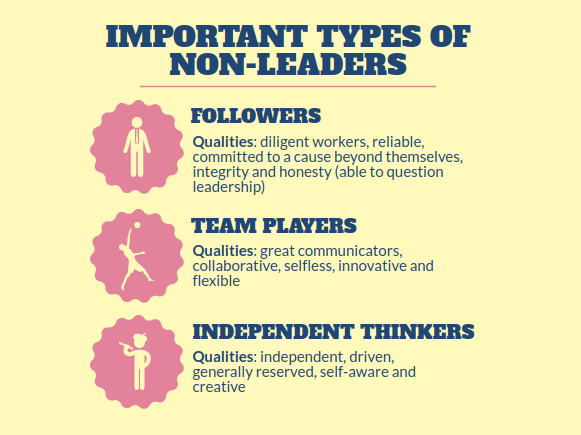There’s more to succeeding than leading

Graphic by Charlotte Alden.
January 19, 2018
What makes a person successful? There are many qualities to choose from: passion, confidence, determination. Although it’s difficult to pin down, college admissions officers seem to have decided a long time ago.
If you don’t believe me, take a look at what they say they look for in students. Yale wants “leaders of their generation,” Harvard wants “citizen-leaders for society,” Tufts wants those with “potential for future leadership” and Wesleyan ranks students based upon their “leadership roles,” according to admission materials from each university.
College admissions officers aren’t the only ones who think that leaders are the best and most successful type of person. Society naturally celebrates the people who rise above the crowd. But it’s important to recognize that the non-leaders in our society are just as important and have equal potential for success.
Any functioning society, government, club or group needs a lot more than leaders, to avoid a vicious situation similar to the Hunger Games where everyone is constantly vying to be at the top. Among some of the non-leaders that we need: followers, team players and independent thinkers.
Being a “follower,” especially in Western culture, has an inherently negative connotation. But followers and team players are just as crucial as leaders: without them, there would be no one to implement projects, build cohesion, raise concerns and create an environment focused on a common vision instead of an individual. While we tend to attribute every success to the leader who organized it, the fact of the matter is that no project could ever succeed without skilled followers. Simply put, without a population of followers, leaders would have nobody to lead.
This is why the military teaches the importance of the principle of “followership.” Army Doctrine Publication 6-22, Army Leadership, emphasizes that “effective organizations” depend just as much on “loyal followers” as “the competence of respectful leaders.” Furthermore, “Learning to be a good leader also needs to be associated with learning to be a good follower—learning loyalty, subordination, respect for superiors, and even when and how to lodge candid disagreement.” Leaders need to learn from followers in order to be successful, and this is just as true in almost any workforce as it is in the military.
Team players are a similar and equally important member of society. Take groups like an orchestra or band, where the music depends on every person in the group equally. Sometimes certain sections or soloists need to take the lead, but for the sake of the music altogether, they can’t stay in the spotlight constantly. In sports like soccer or basketball, the strength of a team is much more than the quality of a leading player. It lies in the beauty of teamwork, of players supporting, anticipating and depending on each other. Sure, the captain of the team is a particularly skilled or important player, but a good team requires a lot more than that.
Additionally, society depends on the lone wolves and the independent thinkers much more than we may realize. People who make crucial breakthroughs in fields like math, science, art and poetry perhaps aren’t what we may define as leaders, but they’re just as important. Figures like Albert Einstein, Vincent van Gogh or Emily Dickinson weren’t successful because they were leaders; they were successful because they worked well independently.
It’s time we revised our definition of success. Colleges, which seek diversity in many other areas, should apply the principle of diversity when considering accepting students of different interpersonal and work approaches. As for wider society, skilled followers, team players and independent thinkers deserve the same respect that leaders receive.








